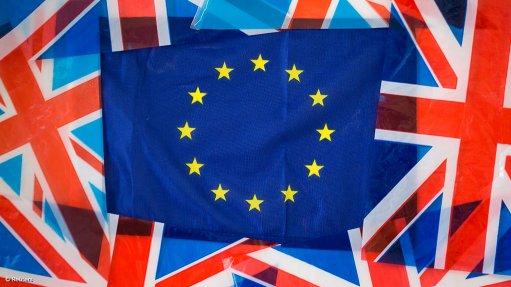
Photo by: Reuters
The National Treasury is busy discussing the possible impact on the South African economy of Britain’s decision to leave the European Union (EU), known as “Brexit” for short. At the moment, it is not at all clear what the UK’s future economic relationship with the EU will look like.
The UK is South Africa’s sixth largest trading partner and this country’s largest single source of foreign investment, accounting for 37% of all inward investment into the country. It is also the largest destination for South African outward investment.
“With so much uncertainty you must have contingency planning,” affirmed National Treasury chief director: macroeconomic policy Catherine Mcleod. “We need to manage the risks. … [M]onitor the financial market conditions. We’re engaging with the UK.” She was speaking on Thursday at a joint South African Chamber of Commerce and Industry and Tutwa Consulting Group seminar on the likely effects of Brexit on South Africa.
The National Treasury has been developing short-, medium- and longer-term scenarios regarding the probable impacts on the British decision on South Africa and the world. “The [widely expected] financial market shocks … haven’t really materialised,” she pointed out. “Although there was initial panic when Brexit happened, since then the markets have been easy.” This was in part due to swift precautionary actions by the Bank of England, which provided reassurance to the markets.
She listed the implications for South Africa as including the risk of high volatility in the financial markets with continued loose monetary policies around the world, and the opportunity to potentially reposition South Africa as a high yield investment destination. “We have to do what is important for South Africa, anyway, such as pursue a growth agenda,” she affirmed.
At the same event, consultancy DNA Economics director Dr Matthew Stern, reported that its research suggested that 85% of South African exports to the UK would be unaffected by Brexit. However, 15% of exports, totalling $854-million (yes, dollars), could be at risk. He listed the potentially most affected areas as agriculture, wine and vehicles, because tariffs on these could go up as preferential treatment provided by the EU would no longer apply to the UK. “For some of the high risk exports, it would be good to start thinking about adjustments now,” he urged.
“Whatever South Africa decides to do [regarding Brexit], our SACU [Southern African Customs Union] partners must concur,” warned Tutwa Consulting MD Peter Draper. “We have to bring our SACU partners with us.”
“The UK is and has been a very important trading partner for South Africa,” noted Stern. “South Africa, and SACU, need to prepare to negotiate a new trade arrangement with the UK.”
In the end, Mcleod observed, the impact of Brexit on South Africa will depend on the shape and form of the post-Brexit relationship between the UK and EU. “That is not clear.”